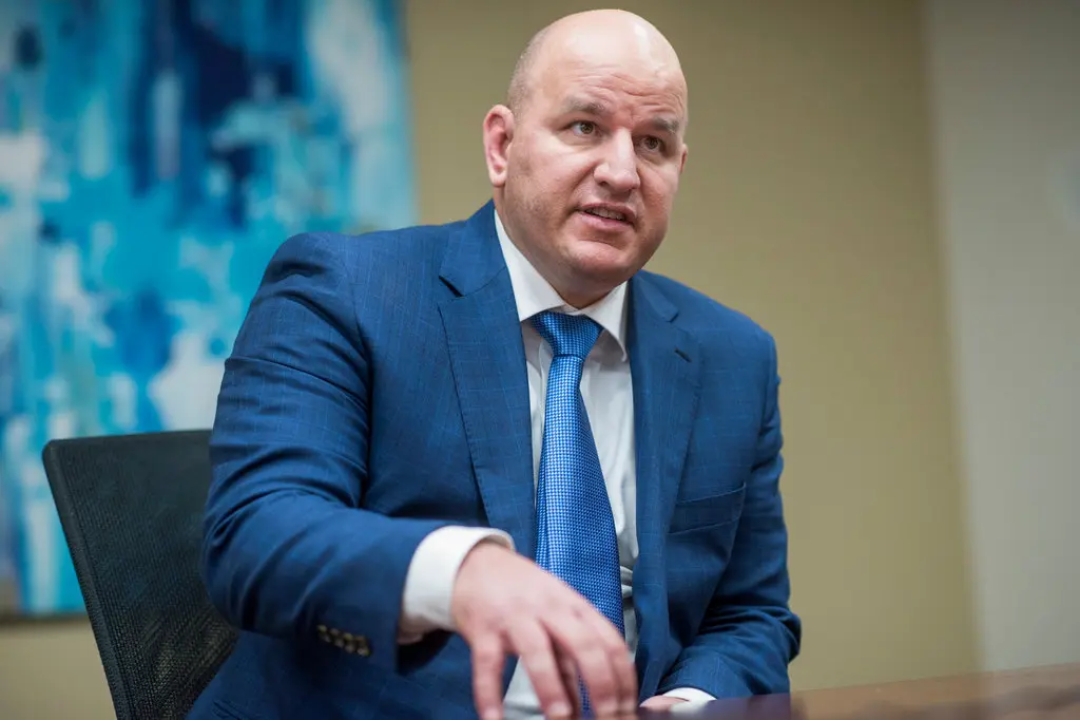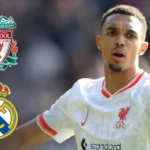Jamie Redknapp names who Arne Slot should be picking at right-back every week for Liverpool

Liverpool’s current season has been a whirlwind of highs and lows, and one of the issues that has quietly undermined their performances is something many fans might not have expected — the right-back position. For years, Liverpool fans took it for granted that Trent Alexander-Arnold would patrol that flank, delivering assists, dictating play, and creating moments of magic. His departure, acrimonious and dramatic, has left a void that no one has yet been able to fill convincingly. The summer transfer window saw the arrival of Jeremie Frimpong from Bayer Leverkusen, a highly-rated Dutch right-back who had impressed in Germany. Alongside him, Conor Bradley, the young Northern Irishman, was expected to compete for the spot, and there has even been some experimentation with Dominik Szoboszlai in defensive rotations, though he is naturally a midfielder.
Arne Slot, Liverpool’s manager, has been grappling with this dilemma all season. After two consecutive defeats, Liverpool traveled to Stamford Bridge to face Chelsea, a match where the Reds hoped to turn the tide. The game was intense, physical, and filled with moments that tested every player on the pitch. Early on, it appeared Liverpool had fought hard enough to claim at least a point, but in a cruel twist, teenager Estevao Willian struck in the dying seconds to give Chelsea the victory. The last-minute defeat highlighted more than just fatigue or bad luck; it exposed cracks in Liverpool’s structure, particularly at right-back.
Throughout the season, inconsistency has plagued Liverpool’s right flank. Alexander-Arnold’s departure left a vacuum that Slot has struggled to fill. Frimpong was expected to bring pace, aggression, and defensive solidity, but his adjustment to the Premier League has not been seamless. At Leverkusen, he often played in a back three, which differs tactically from the responsibilities of a full-time right-back in Slot’s system. The Dutchman has flashes of brilliance but has struggled to adapt fully, leading to moments of uncertainty in crucial matches. Meanwhile, Conor Bradley, while talented and eager, has faced his own set of challenges. Injuries and the pressure of being thrust into the first team have sometimes hindered his performances, leaving him vulnerable against quick, skillful attackers.
Against Chelsea, Slot opted to start Bradley on the right. The Northern Irishman showed glimpses of his potential, but the intensity of Premier League football can be unforgiving. Bradley struggled to contain Alejandro Garnacho’s pace and directness, and he eventually earned a booking for a rash challenge, a reflection of the difficulty he faced in adapting to the high-pressure environment. Slot, reacting to the unfolding difficulties, made a tactical change at half-time. Bradley was withdrawn, Szoboszlai moved back to cover defensively, and Florian Wirtz entered midfield to bolster attacking options. While these adjustments were necessary, they also highlighted Liverpool’s ongoing uncertainty in this position.
Former Liverpool captain and pundit Jamie Redknapp has been vocal about the right-back issue. Speaking to Sky Sports after the Chelsea game, he emphasized the need for clarity and consistency. Redknapp’s viewpoint is simple yet critical: Liverpool must choose one player and allow them to cement themselves as the first-choice right-back. “I really want to see Conor as that out-and-out right-back,” he said. He acknowledged that injuries had hampered Bradley’s chances and noted that Frimpong’s previous role in Germany made him less suited to Slot’s system. Szoboszlai, while effective in certain matches, is not a natural defender, and relying on him to patch the right-back position is not a sustainable solution.
Redknapp’s comments underscore the complexity of Liverpool’s dilemma. Alexander-Arnold’s departure was not just a loss of skill but also a loss of a player who had been central to Liverpool’s tactical identity for years. The Scouser’s crossing, overlapping runs, and attacking intelligence were integral to the team’s success, and replacing that impact is no simple task. Liverpool’s management now faces a decision: continue rotating between Frimpong, Bradley, and Szoboszlai, risking further inconsistency, or commit to one player and allow them to grow into the role.
The problem is compounded by the scarcity of top-quality right-backs in the transfer market. Redknapp pointed out that there are few options available to clubs, especially those who can seamlessly integrate into Liverpool’s high-tempo, attacking style. Players like Hakimi are exceptional, but they are rarely available, and even then, adaptation to Liverpool’s system is not guaranteed. The club must therefore work with the players at hand, developing them into reliable options, which requires patience, trust, and strategic coaching.
Liverpool’s injury record has also played a role in the ongoing uncertainty. Both Bradley and Frimpong have faced setbacks that have interrupted their rhythm and prevented them from establishing themselves as consistent performers. Bradley, for instance, has battled niggles that have limited his minutes, while Frimpong’s adaptation period has seen him oscillate between promising displays and moments of defensive vulnerability. Szoboszlai, though talented, is naturally a midfielder, and his deployment at right-back is more of a temporary fix than a long-term solution.
Despite these challenges, there are positives. Both Bradley and Frimpong possess significant talent and potential. Bradley’s pace, defensive awareness, and work rate are impressive, and with regular play, he could develop into a reliable first-choice right-back. Frimpong’s experience in Germany and versatility make him an intriguing option, capable of performing in multiple systems. Szoboszlai’s inclusion provides flexibility and ensures that Liverpool can adjust tactics mid-game, though he should not be considered a permanent solution.
Slot’s task is now to balance these factors while maintaining Liverpool’s overall performance. The right-back position is critical not only defensively but also in terms of attacking dynamics. Liverpool’s full-backs are expected to contribute to attacks, deliver precise crosses, and maintain width while tracking back to defend. A lack of consistency in this position affects the team’s overall rhythm, limiting attacking options and creating gaps for opponents to exploit. The Chelsea match provided a stark example, with Bradley struggling to cope with the opposing winger’s movement, ultimately contributing to the late goal that sealed Liverpool’s defeat.
Redknapp’s advice is pragmatic: choose a player and stick with them. Football is a game of rhythm, understanding, and familiarity, particularly in defensive positions. Constant rotation can disrupt cohesion, communication, and trust between defenders. By committing to one player, Liverpool can develop stability, allowing the right-back to understand the team’s defensive and attacking patterns fully, build confidence, and reduce errors caused by uncertainty.
The broader implications for Liverpool are significant. The right-back issue is more than a positional problem; it is a reflection of the club’s transitional phase following Alexander-Arnold’s exit. The team must adapt to a new reality, develop young talents, and integrate summer signings effectively. This process takes time, and supporters must be patient while recognizing that the right-back challenge will continue to influence results until a solution is found.
As Liverpool look ahead to upcoming fixtures, Slot’s decisions regarding the right-back position will be closely scrutinized. Choosing between Bradley and Frimpong, while managing injuries and tactical considerations, will require careful planning. The development of a clear first-choice right-back could provide the stability needed to regain form, particularly after the three consecutive defeats that have raised concerns. A confident right-back can transform the team’s defensive solidity, contribute to attacking fluidity, and provide leadership on the flank — qualities that Liverpool currently miss without Alexander-Arnold.
Fans, too, are adjusting to this new era. The void left by Alexander-Arnold is tangible, and while supporters respect both Bradley and Frimpong, they also recognize that replacing a player of Trent’s caliber is almost impossible. Patience, trust, and belief in the club’s developmental approach are essential. Redknapp’s guidance reinforces this, emphasizing that the club must work with the players available, invest in their growth, and make strategic choices that prioritize long-term stability over short-term experimentation.
The narrative surrounding Liverpool’s right-back conundrum highlights the intricacies of football management. Transfers, injuries, tactical systems, and player development are intertwined, and the right decision can influence a season’s trajectory. Slot must weigh performance metrics, player potential, and team dynamics while navigating pressure from fans, media, and the high expectations associated with Liverpool. Each match, training session, and tactical adjustment carries significance, shaping not only the present but also the future of the squad.
Moreover, this situation serves as a reminder of the human element in football. Bradley and Frimpong are young professionals, each coping with pressure, expectations, and the weight of replacing a legend. Their mental resilience, ability to learn from mistakes, and capacity to thrive under scrutiny are as important as their technical abilities. Slot’s support, guidance, and decision-making will play a pivotal role in determining who can step up and command the right-back position consistently.
Looking beyond Liverpool, the challenge of replacing a key player like Alexander-Arnold is a lesson for clubs across the world. Developing a succession plan, nurturing young talent, and integrating new signings are all critical components of sustained success. Liverpool’s experience underscores how a single position, when disrupted, can ripple across the entire team, affecting cohesion, attacking patterns, defensive stability, and match outcomes.
As the season progresses, the battle for the right-back spot will remain a focal point for Liverpool. Slot’s choices, the players’ performances, and the integration of tactical strategies will be scrutinized by pundits, former players, and fans alike. Redknapp’s advice to commit to one player is sound, emphasizing the need for stability, confidence, and development in a position that is pivotal to the team’s identity. Whether it is Bradley, Frimpong, or another solution in the future, Liverpool must resolve this issue to regain their competitive edge and restore the balance that Alexander-Arnold once provided.
In conclusion, Liverpool’s right-back situation encapsulates the challenges of modern football — transitions, high expectations, and the search for consistency in a position of immense tactical importance. The departure of Trent Alexander-Arnold created a void that has tested the club, manager, and players alike. While Frimpong and Bradley have shown promise, a definitive solution is needed. Slot’s task is to identify the player capable of stepping into the role fully, nurturing their growth, and providing stability for the team. As Liverpool navigate this season, the right-back position will remain a critical factor in their quest for success, influencing performances, results, and the team’s evolution in the post-Alexander-Arnold era.















